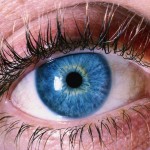A couple of weeks ago I found myself attending the eye departments of the local hospital with my daughter. While waiting for her to be seen by an optician I cast my eyes over a leaflet produced by Moorfields Eye Hospital on the subject of Cataracts. Moorfields is, apparently, the oldest and largest eye hospital in the world with a background in research and patient orientated services.
As readers of this blog may have noticed I am often critical of a lot of medical education provided to consumers both in the UK, the EU and North America so I was delighted when I read this little pamphlet. In my view it is one of the best examples of a concise and straight forward explanation of medical issues I have come across.
So I felt that this blog would be a great opportunity to share with our readers some of the key point in the booklet.
So what actually is a cataract? It “is the clouding….of the lens inside the eye. It causes gradual blurring of vision and often glare”.
A cataract means that the eye’s lens becomes cloudy which “prevents light rays from passing on to the retina”. The retina being the back of the eye. Therefore the picture that your retina gets is blurry. It is worth noting that cataracts form over a long period of time.
Typically cataracts are age related and using the eyes will not make them worse. Lots of people don’t know they have cataracts until they are told so by an optician.
It is worth noting that diabetes significantly increases the chance of cataracts.
So how is a cataract treated? When the cataract starts to cause problems with daily life the usual treatment is surgery. At present there is no known preventive measure for cataracts. Modern surgery has proven to be highly effective.
The most common type of cataract surgery is called phacoemulsification and does not involve an overnight stay in hospital. The procedure uses sound waves to first soften the lens which is flushed out using water. The back membrane is left behind while the lens is replaced by a new plastic one.
The operation is mainly performed under a local anaesthetic given by either eye drops or an injection.
One of the big pluses of the operation is that it helps clear up a number of other sight problems such as short sightedness. Most people afterwards will only need reading spectacles.
More information on Cataracts can be found at the Moorfields web site which can be reached at http://www.moorfields-private.co.uk/EyeConditionsTreatments/cataracts.
So over to you? Have you had a cataract operation? How did it go? Did you have any complications? Please use the comments box below to tell the story of you cataract surgery. It will be of great use to anyone who will have such surgery in the future.
Many thanks in advance.

Re: cataract surgery experiences … I have an interesting challenge … to trust new methods when I already had one eye done 20 years ago (glass lense).
The images from that eye have become better over the years to the point that I don’t need corrective glasses … amazing.
Now the other eye is a total grey haze .. of no use at all. There is only one option at this time. I hope to use the same method for this eye and I have concerns about plastic as I had a bit of rejection with the glass implant … I am in the testing stage at this point … should be interesting … Ann
I had cataract surgeries on both eyes in 2008. Afterwards, my vision actually got worse. Ordinary reading glasses didn’t help, & I had to go back to prescription glasses, that were in fact, stronger than before. Over the next few years, my vision got worse & I had to get several new pairs of glasses, each stronger than the last. I was only 48 when I had my cataract surgeries, & also before I was officially diagnosed as diabetic. I’d been borderline/pre-diabetic for many years, but did not receive an official diagnosis & put on insulin until 2012, at age 52. And I’m being monitored for glaucoma; I had all the signs for it as well, high eye pressure, etc., but it seems that the pressure went down just a bit after my cataract surgeries. Do I regret having cataract surgery? Sort of. But I was given the impression I had no other alternative. I also discovered that there were 2 types of cataract surgeries at the time, what I call 1 for poor people & 1 for not so poor people. I don’t recall what the more expensive surgery was called, but I remember that it had something to do with much better lenses. I’d be willing to bet that if I’d had the better lenses, I wouldn’t have had all the subsequent vision issues. It seemed like just because I’m on a fixed income & Medicare/Medicaid, I had to get the cheap/standard lenses. I certainly didn’t have the money for the better ones ($2,000 per eye). And like I do before any surgery, I did my homework. I had no other options except what I was offered, even after a 2nd & 3rd opinion. So, please do your homework. Don’t do it unless you have no other options. And get the best lenses you can, if you’re able. Thank you for your time!